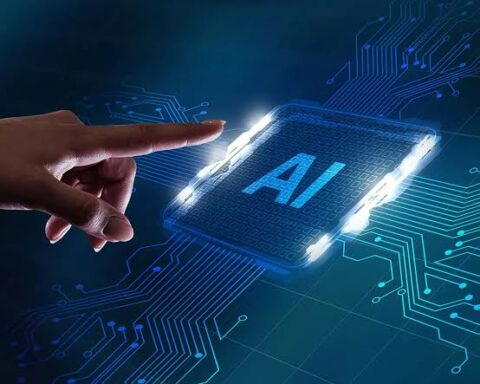- “Artificial Intelligence (AI) has emerged as a revolutionizing force that changes the way we innovate and interact with technology. Its transformative power extends far beyond automation and efficiency, shaping the very fabric of our society and planet. While it can contribute to environmental sustainability through various applications, it also presents challenges. Large-scale AI workloads and advanced data analytics demand higher energy consumption. The MIT Technology Review reported that training just one AI model can emit more than 3,00,000 kilograms of carbon dioxide equivalent – which is nearly five times the lifetime emissions of an average car. To lessen the environmental impact of AI, it’s important to invest in sustainable practices like green data centers using all-flash storage which have lower energy and cooling requirements. Additionally, addressing issues of bias and ensuring transparency in AI systems can contribute to fair and equitable environmental decision-making.” – Ajeya Motaganahalli, VP, Engineering and Managing Director, India R&D, Pure Storage

- “With significant achievements in AI technologies, access to a wide range of datasets, and low-cost storage and computing power, the impact has been transformative in recent years. In the future too, developments in Natural Language Processing and Contextual Understanding will enable systems to provide a hyper-personalized experience – interacting with customers with a stronger understanding of their preferences, behaviors making personalized recommendations, offering customized offerings, understanding emotions and complex language nuances so well that people are not likely to make out the difference between a human and a virtual assistant or a chatbot. AI-driven technologies such as Computer Vision, Augmented Reality, and Virtual Reality will see more innovative use cases in the day-to-day aspects of our life, creating differentiators for businesses and enriching the customer journey.”– Mr. Siraj Ali Mohamed, Director- Data and Analytics, Experion Technologies

- “There has been a huge watershed moment for Artificial Intelligence after ChatGPT was unveiled. AI has applications in a lots of engineering fields including automation of tasks, which massively boosting productivity and propels the economy forward. Considering how it will replace traditional IT jobs, students with AI specialization will certainly have a competitive advantage in coming years. Since Artificial Intelligence is still a nascent field – it has a lot of scope for study, research breakthroughs and coming up with new algorithms. Now is the right time for educators to skill students on AI fundamentals so that they can seize it at the right time and build upon their skillsets as the research advances.”– Mr. Karun Tadepalli, CEO & Co-Founder, byteXL

- “Artificial Intelligence has revolutionized technology consultancy, empowering consultants with enhanced problem-solving capabilities and streamlined decision-making processes. This new era of expertise, empowered by intelligent algorithms, is shaping the future of businesses in the digital age, delivering unparalleled value to clients, and transforming the field of technology consultancy. AI is poised to further transform the seamless digitization and automation in India, bringing about significant advancements and opportunities across various sectors. As AI continues to advance, India stands to benefit from its transformative potential. By embracing AI-driven digitization and automation, India can pave the way for improved governance, enhanced customer experiences, advanced manufacturing practices, accessible healthcare, quality education, sustainable agriculture, and efficient transportation systems.”- Mr. Anwar Hussain, Director of AI/ML & DevSecOps, CriticalRiver








